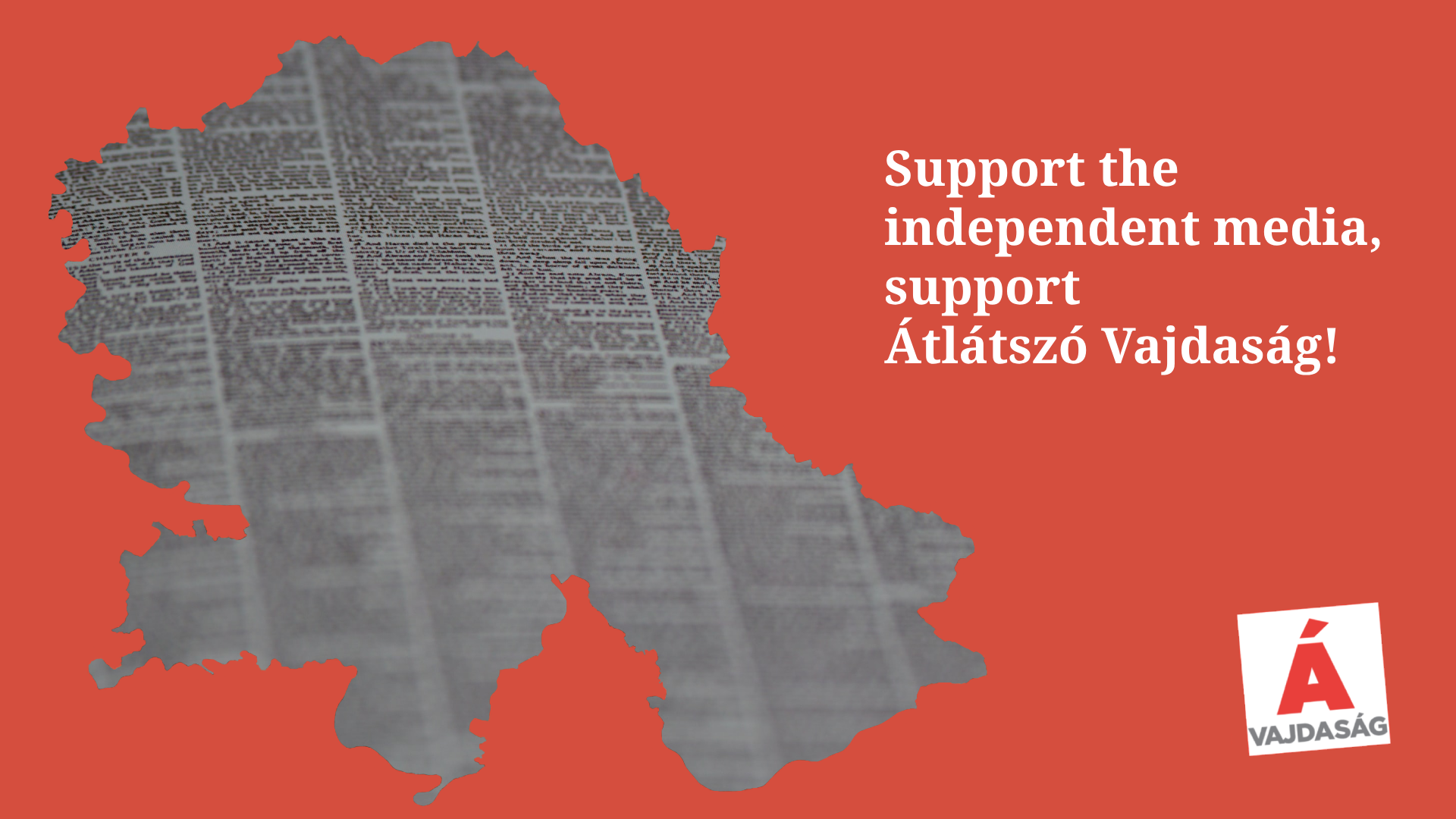
The diplomatic relationship between Hungary and the Republic of Srpska (also known as Republika Srpska) has a relatively brief but comprehensive history. The friendly relationship, which started in 2019, has been crowned with preferential loans, economic support and investments of mutual interest since 2022.
As Hungary’s relations in the European Union weakened, its relations in the Western Balkans have started to strengthen. Though Hungary does not share borders with Bosnia and Herzegovina, via Serbia, it regards this country an honourary neighbour. The Serbian side is an important guide in this relationship, because for Serbia it is of prime importance that the Serb community in the Republika Srpska becomes part of international diplomacy.
In order to understand the present situation in Bosnia and Herzegovina, we must first understand that, because of the war waged there thirty years ago, this region has not yet recovered economically. The existential crisis is worsened by high unemployment, consequently, due to the lack of prospects, the country’s population leaves its homeland en masse. The latest UN estimate is that by 2100, Bosnia and Herzegovina’s population could fall by as much as 57%. This trend makes the state one of the most vulnerable countries in Europe to depopulation.
EU integration and strengthening its economy would be the region’s response to the emerging difficulties. In both areas, Hungary is a committed supporter of Bosnia and Herzegovina, but especially of the Serbian entity within it.
Three nations and three religious denominations under one flag
The successor states of former Yugoslavia endured the most hardships during the democratic change that became inevitable in Central and Eastern Europe at the end of the 1980s, because the disintegration of the former one-party system and the break up of the Yugoslav unitary state had brought to the surface a series of such conflicts that could no longer be resolved peacefully. By March 1992, the situation had escalated among the three ethnic and religious communities living in Bosnia and Herzegovina: the Muslim Bosniaks (44% of the total population), the Orthodox Serbs (32.5%) and the Catholic Croats (17%).
The first multi-party elections were held in 1990, in the six constituent republics of the Socialist Federal Republic of Yugoslavia (SFRY) (Serbia, present-day Croatia, Bosnia and Herzegovina, present-day North Macedonia, Slovenia and Montenegro). Franjo Tuđman was elected President of the Republic of Croatia, Alija Izetbegović President of the Republic of Bosnia and Herzegovina and Slobodan Milošević President of the Republic of Serbia.
These three presidents played a decisive role in the Yugoslav wars in the 1990s.
The civil war in Bosnia and Herzegovina broke out after this republic declared its independence from the SFRY on 1 March 1992, the day after the referendum, but the local Serb deputies did not agree with that decision.
Three constituent republics declared their autonomy previously. Slovenia and Croatia proclaimed their independence from the SFRY on 25 June 1991, and the three-month moratorium on the independence declaration expired on 8 October. Today’s North Macedonia decided to secede on 8 September 1991.
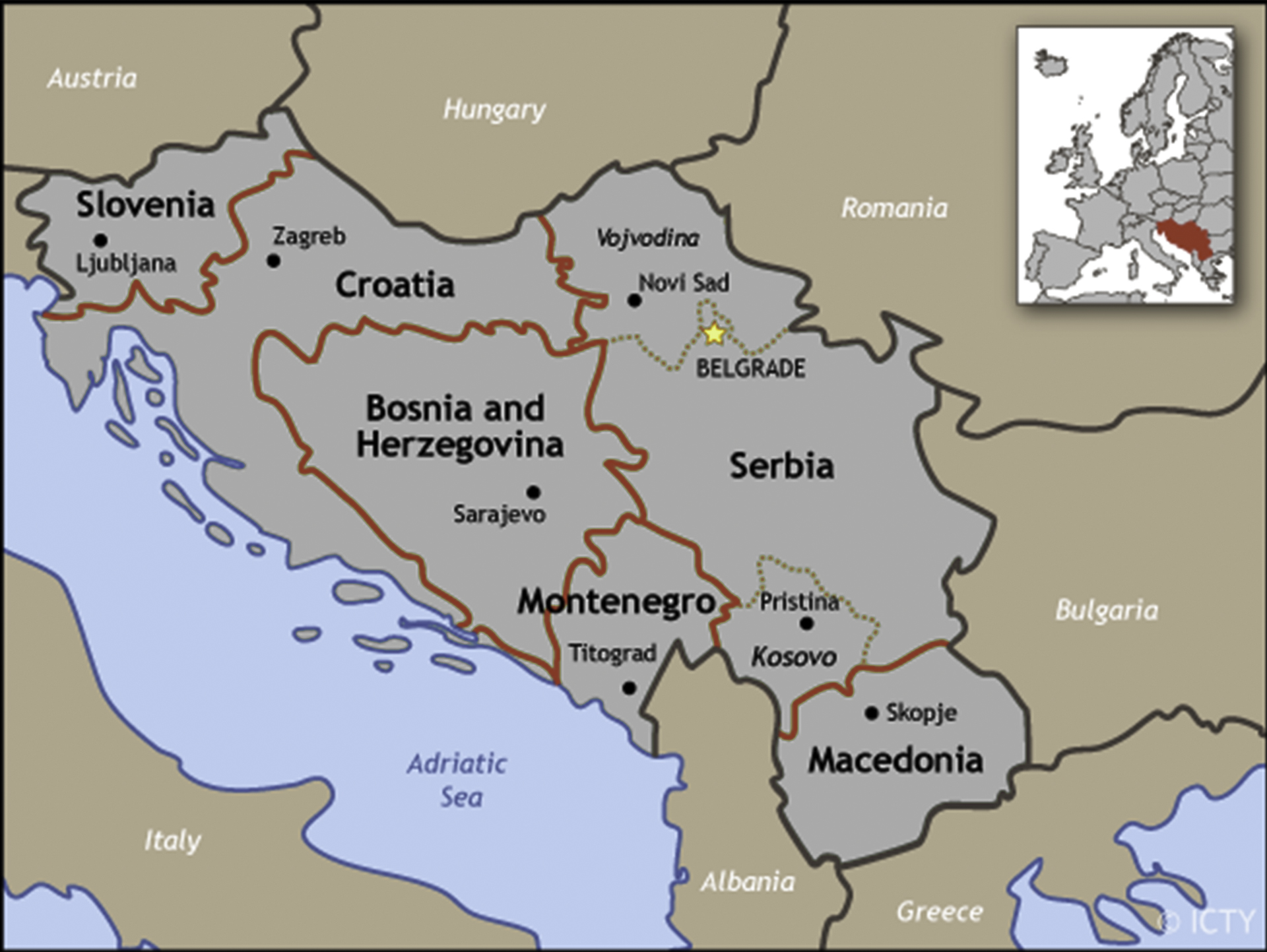
The Bosniak and Croat representatives of Bosnia and Herzegovina, by common accord, refused on 14 October 1991 to participate in the work of federal state institutions, unless all six Republics were involved.
The Serb representatives of Bosnia and Herzegovina were against the initiative, boycotted the consultations, and left the meeting. The Assembly’s Bosniak and Croat majority decided on the memorandum in their absence.
Thereby, they practically signed the declaration on the sovereignty of Bosnia and Herzegovina.
Serb deputies proclaimed the establishment of the Serb Assembly of Bosnia and Herzegovina on 24 October in Sarajevo, and that dissolved the tripartite Federal Assembly of the Federal Republic of Bosnia and Herzegovina. The Serb Assembly held a referendum in November, and the majority of Serbs in Bosnia and Herzegovina voted in favour of maintaining the Federal State of Yugoslavia.
However, the majority Bosniak and Croat representatives continued to push events towards secession. National referendums on the independence of Bosnia and Herzegovina were held on 29 February and 1 March 1992, and, again, the Serbs boycotted participation. A number of incidents took place during the days of the referendum, including the first armed shoot-outs with casualties.
This marked the beginning of a war that claimed nearly 100,000 victims and lasted more than three years.
By then, the armed conflicts in Croatia had been going on for almost a year. The international community spared no efforts to prevent the war to spread to other critical areas of the disintegrating SFRY and Bosnia and Herzegovina, and developed various peace concepts.
One of these peace plans was the Carrington-Cutileiro plan, also known as the Lisbon Agreement, which would have divided the country, essentially along ethnic lines, into cantons, taking into account economic, geographical and other criteria.
A revised version of the Lisbon Agreement was signed by all three parties on 18 March 1992, but the Bosnian President, Alija Izetbegović subsequently withdrew his signature. Although the plan was rejected at that time, the three nations sought to strengthen their majority position in the cantons against the other two parties through ethnic cleansing.
The bloodiest event of the war in Bosnia and Herzegovina was the genocide in Srebrenica in July 1995.
The Serbian army deployed in the area, under the command of Ratko Mladić, murdered about 8,700 Muslims, mostly men and boys.
In the autumn of 1995, the international community exerted pressure on all three parties to take part in the negotiations on the settlement of the armed conflict. The agreement, which resulted from a peace conference in Dayton, Ohio, in November 1995, was signed in Paris on 14 December 1995.
The agreement set up a complex administrative structure that fragmentised the administration, but, at the same time, that structure was meant to ensure the prevention of renewed ethno-religious conflict in the country.
The state structure established by the Dayton Agreement
Under the Dayton Agreement, urged by the international community, which would guarantee the country’s peace and sovereignty, Bosnia and Herzegovina retained its external borders, but was divided into two entities: the Federation of Bosnia and Herzegovina, with the cantons, and the Republika Srpska, mostly inhabited by Serbs. Neither of the two entities included the municipality of Brčko, populated by all three nationalities, which geographically divides both entities into two parts. The municipality initiated to have its own administration and, eventually, was granted a special territorial status in 2000, as the Brčko District.
Currently, both the Brčko District and the two main entities operate as autonomous administrative units, with their own parliaments, governments and heads of state, but all three are overseen by the common central authorities of the state of Bosnia and Herzegovina. The state is led by a three-member rotating presidency, with Bosniak, Serb and Croat members elected every four years and rotating every eight months.
In addition, the country is also under international control. Compliance with the Dayton Agreement is monitored by the Office of the UN High Representative with special powers.
Bosnia and Herzegovina’s EU membership stagnated for almost fifteen years
The most certain way to achieve sustainable economic growth and political stability is European integration. Bosnia and Herzegovina cherished that hope when it started down the path of EU accession, but it turned out, that this road is bumpier than expected.
The country’s EU accession negotiations have been ongoing since 2010. As a first step, a constitutional reform became necessary, given that the previous constitution, established as part of the Dayton Agreement, did not set up a sufficiently effective state administration system, since – in contrast to the centralisation of the federal state –, it provided too broad autonomy to entities.
However, the precondition of the constitutional reform is that federal government leaders prevail over their ethnic differences. Before the start of accession negotiations, the international community has already made it clear, that
the European Union envisages Bosnia and Herzegovina’s accession in one form only, and according to it the country’s sovereignty is inviolable.
Despite the urgency, neither the constitutional reform, nor the changes of the electoral system, have been introduced to this day.
Nevertheless, Bosnia and Herzegovina applied for EU membership in 2016. In its response in 2019, the European Commission (EC) drew up a 14-point priority list of areas where it considers that reforms are needed. Although no significant progress has been made, the country was granted candidate status in December 2022, with the proviso that the country would take the necessary measures to strengthen the rule of law, to fight against corruption and organised crime, to improve migration management and fundamental rights.
Accession negotiations were formally launched in March 2024, after the EC adopted its Enlargement Package.
However, a condition for the opening of the accession negotiation framework is to follow the recommendations made earlier.
As early as 2011, when it held the rotating Presidency of the Council of the European Union for the first time, Hungary supported the integration of the Western Balkans. In 2024, from 1 July until the end of the year, it will hold the position for the second time, and one of the country’s priorities during the six-month term will be to speed up the accession process of the candidate countries, including Serbia and Bosnia and Herzegovina.
Hungary, an EU member since 2004, also offered to help Bosnia and Herzegovina by passing on its experience within the Hungarian Diplomatic Academy. However, that kind of support was overshadowed by the fact that in May 2024, Hungary – as the only EU and NATO member – did not vote in favour of the UN resolution on the recognition of the Srebrenica Genocide Memorial Day, and subsequently Bosnia and Herzegovina abruptly withdrew from the agreement.
Based on a press conference with Nermin Nikšić, Prime Minister of the Federation of Bosnia and Herzegovina, this conflict seems to have been resolved since then, because the Federation and Hungary announced at a joint press conference in Budapest in October – within a business forum – that, based on Hungarian experience, fifty public administration professionals would be trained to face the challenges ahead for successful EU integration.
One of the most unstable points in the Western Balkans: the Republika Srpska
Milorad Dodik has been the leader of the Republika Srpska since 1998. He was Prime Minister from ’98 to 2001 and from 2006 to 2010, and President of the Bosnian Serb entity from 2010 to 2018 and from 2022 to the present.
Dodik has been hinting in the press since his second term as prime minister – after Montenegro’s independence in 2006 and Kosovo’s secession in 2008 – that he will call for a referendum on the entity’s secession from Bosnia and Herzegovina, while during the 2010 parliamentary elections, he openly campaigned for secession.
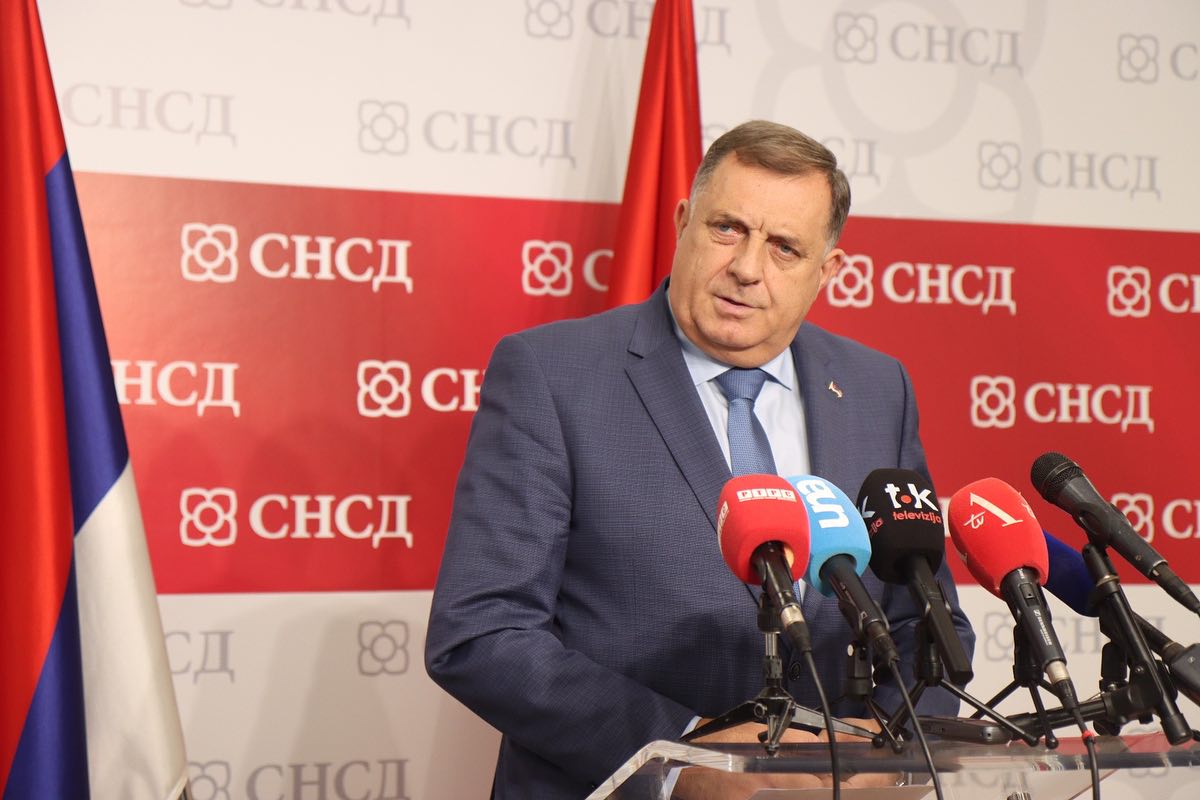
Dodik argued that, according to the Serb community, the federal judiciary had disproportionately prosecuted more Serbs for crimes committed between 1992 and 1995. He also argued that the Republika Srpska was dissatisfied with its status within Bosnia and Herzegovina.
The post-war reconstruction was funded by the international community, but a larger proportion of the aid went to the Federation. The reasons for that were, partly, the greater losses this region endured in the war and, partly, to avoid that Islamic communities turn to fundamentalism. In any case, the unequal distribution of aid between the two entities – the Federation and, mainly, the marginal areas of the Republika Srpska – has resulted in striking infrastructural disparities.
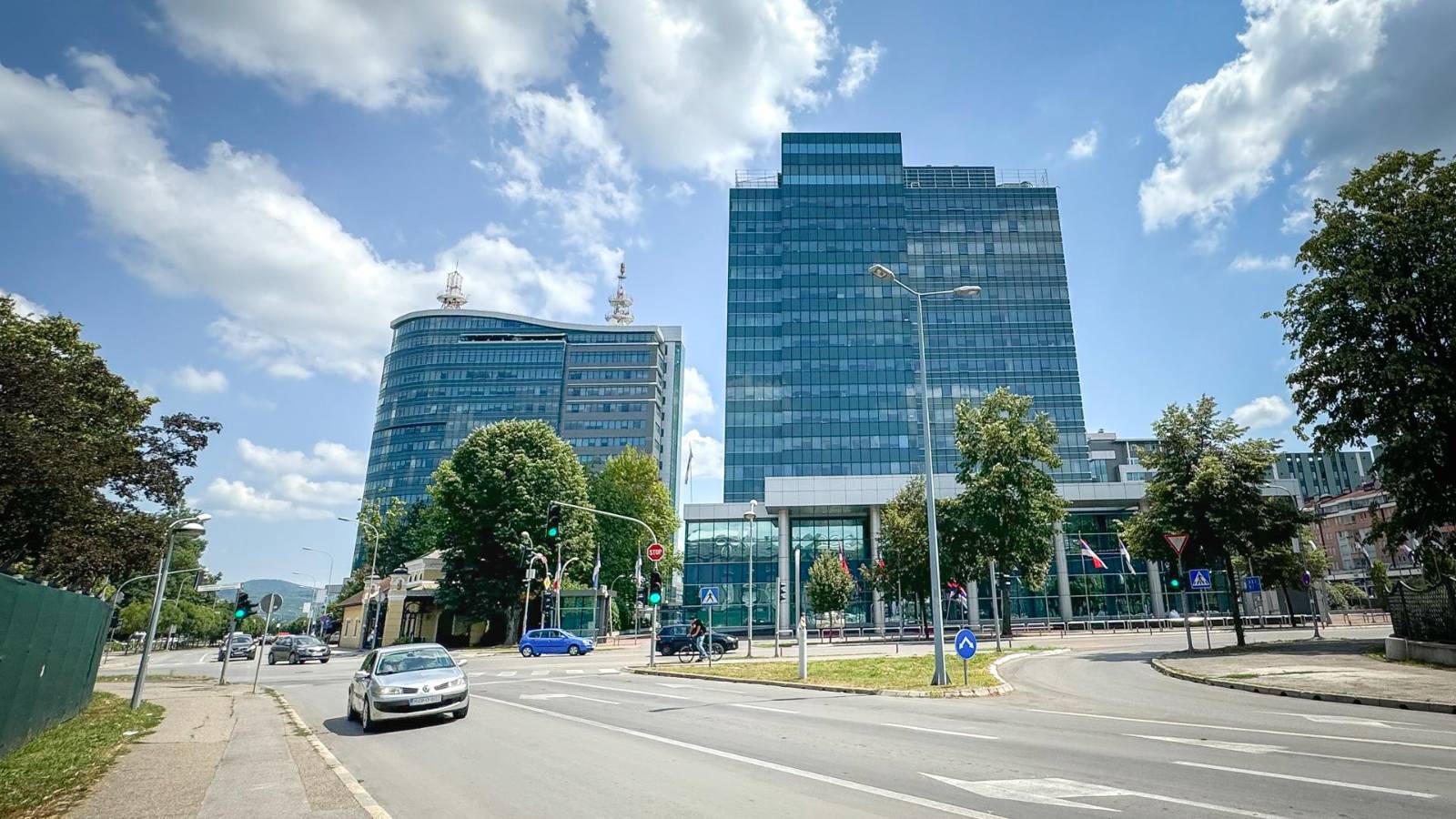
The issue of the separation of the Bosnian Serb entity might sound frightening, because it is feared that independence – or breaking the agreement that ended the war – would once again disrupt the – so far – peaceful daily life of the three ethnic groups living in Bosnia and Herzegovina.
After fifteen years of threatening, however, it is getting less likely that Dodik will actually play his trump card.
Even Bosnian Serb journalists covering local situations on a daily basis consider this scenario unrealistic. Their unanimous opinion is that the Serb entity today lacks the material and military infrastructure and the civilian strength of its people that would be necessary for a war of independence.
However, the separation of the Republika Srpska is all the more a complicated issue, because its territory is not contiguous due to the independent status of the ethnically and religiously heterogeneous Brčko District. A unified separation of the Serb entity is therefore physically impossible.
However, the international community does not leave the fate of Bosnia and Herzegovina to chance, and nips any secessionist aspiration in the bud.
Some analysts consider the Serb entity’s holding the Republika Srpska National Day referendum – although the Constitutional Court of Bosnia and Herzegovina ruled against its constitutionality – as a rehearsal of another referendum that would allow the entity to take a step toward its independence later on. In January 2017, the United States of America (USA) imposed sanctions against Milorad Dodik in order to discourage such efforts, and because companies linked to Dodik had won too many public procurement contracts. Under the sanctions, Mr Dodik is banned from travelling to the US and all his property and belongings are confiscated.
These sanctions were subsequently extended by the US Department of the Treasury to Dodik’s family, and local financial institutions were obliged not to do business with individuals on their blacklist. If banks fail to comply with the sanctions, they could lose their SWIFT code for international money transfers. This has effectively made it impossible for Dodik and companies in any way connected to him to engage in trading through money transfer.
A helping hand for a marginalised politician
Hungary’s rapprochement found the Republika Srpska in difficult economic circumstances and in hopeless political situation. Even Milorad Dodik himself said of the region in 2013 that “today this country is a dismal and a poor place for the people living there”.
Amid the sanctions against Dodik, Prime Minister Viktor Orbán supported the marginalised politician with preferential loans, economic support and, most importantly, by treating the Republika Srpska leadership as a political factor.
The senior leadership of the pre-Orbán government was regularly represented at the meetings between the two countries as early as 2010, except that, at that time, paying equal attention – at least a courtesy visit – to all three members of the collective state presidency by the Hungarian delegation was an essential consideration, but from 2013 onward this balance got disrupted.
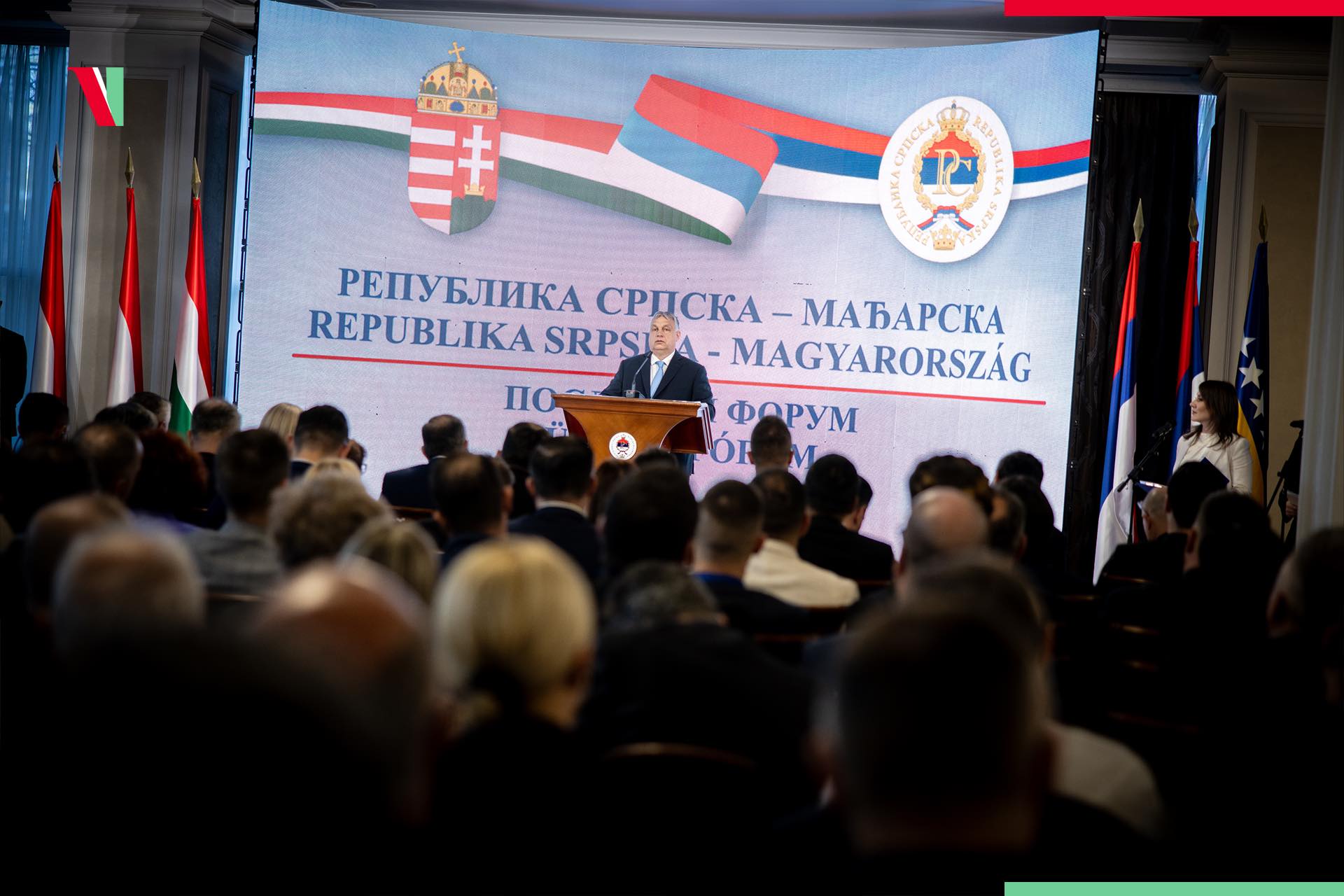
In an interview after his visit to Banja Luka, Zsolt Németh, Parliamentary State Secretary of the Ministry of Foreign Affairs, explained the rapprochement by saying that regional – and neighbourhood policy in a wider sense –, is one of the priority areas of Hungarian foreign policy, and is, in particular, relevant for strategic and economic reasons, and that Republika Srpska is Hungary’s honourary neighbour. Therefore, the tendency that Hungary has a disproportionately smaller share of trade with the Republika Srpska, with three quarters of its exports going to the Croat-Bosniak Confederation, needs to be changed.
Nevertheless, substantial change occurred only after Serbian President Aleksandar Vučić joined the discourse.
Viktor Orbán met Milorad Dodik for the first time in June 2019 and immediately announced that Budapest would deepen its relations with Banja Luka, the capital of Republika Srpska. As a policy paper on the relationship between the two countries points out, Orbán, by appealing to his Bosnian Serb counterpart’s vanity and need for political recognition, graced Dodik and Bosnia and Herzegovina with personal respect:
“You are a person who is ready to stand up for your community and we respect the identity of the Republika Srpska”
– Orbán said, adding that he sees more points of contact between the two countries in the future. He said the criticism against Dodik were nothing but acknowledgment of his political qualities.
A few months later a trilateral meeting was held in Serbia, where the two leaders were received by President Aleksandar Vučić. The topic of the meeting was cooperation in the region and a more dynamic development of relations between the three countries, with a special focus on the implementation of energy infrastructure facilities.
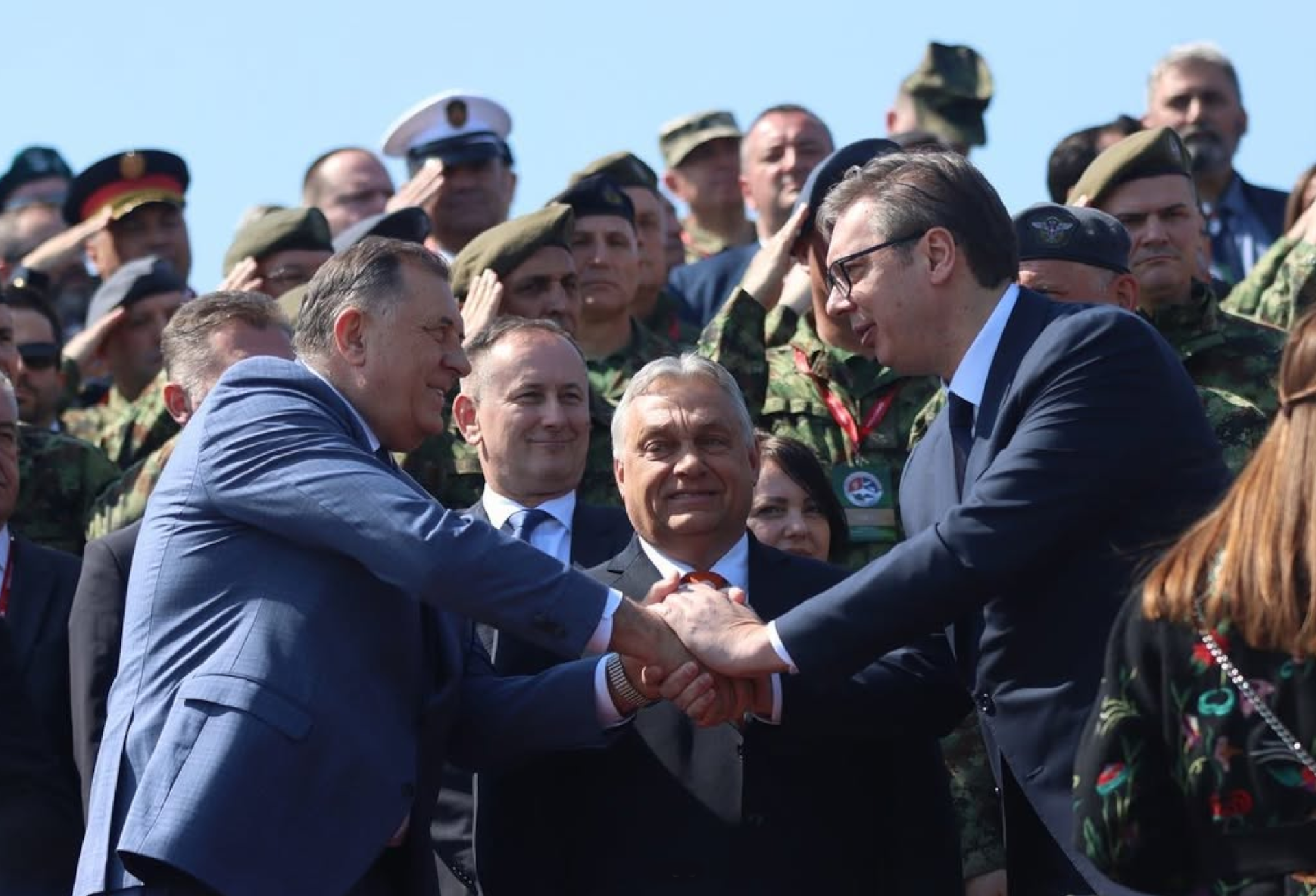
Péter Szijjártó’s statement in December 2021, after German Foreign Minister Annalena Baerbock announced new sanctions against Dodik, had a decisive impact on the deepening of relations between the two countries:
“We are concerned about such statements, because Bosnia and Herzegovina is close to us, and keeping stability and peace in the country is our vital interest with regard to security. Berlin is further away, but not so far away that you can’t fly from there to Banja Luka at any time. To fly and negotiate.
Talk with the Bosnian Serbs. With them and not about them.
It might help to better understand the situation” – Szijjártó wrote in his Facebook post, stressing that they will veto the sanctions.
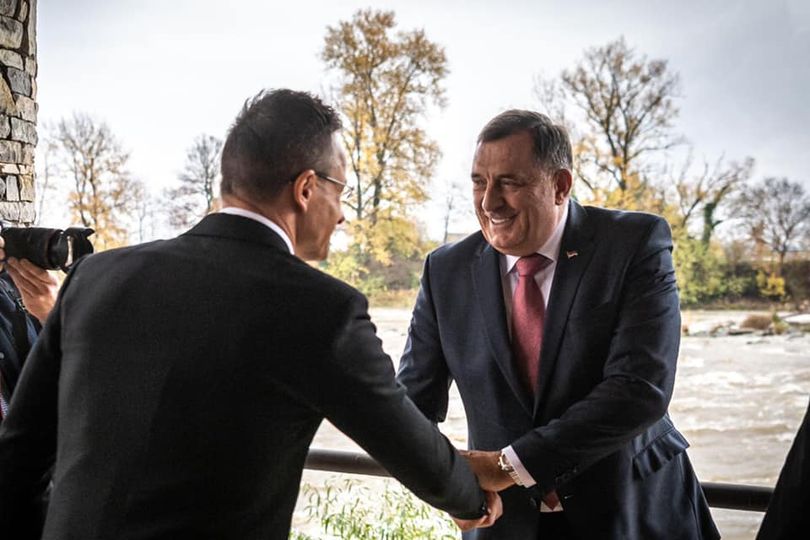
In the past three years since then, Hungary has pledged to implement a number of projects on the territory of the Republika Srpska. In the autumn of 2022, under its responsible neighbourhood policy, Hungary launched an economic development assistance programme, whereby agricultural machinery was made available to the region’s agro-industrial actors for purchase from Hungarian manufacturers. In December 2022, it was announced, that the Republika Srpska would take 110 million euro loan from the Hungarian Exim Bank. The Hungarian government also anticipated the financing of those projects from which the German KfW Bank had withdrawn its support, because of the sanctions against Milorad Dodik.
The proof of the Bosnian Serbs’ appreciation for Hungary’s moral and material stand toward them is the fact that Viktor Orbán received the highest state award from Milorad Dodik. The same award was previously presented to Russian President Vladimir Putin.
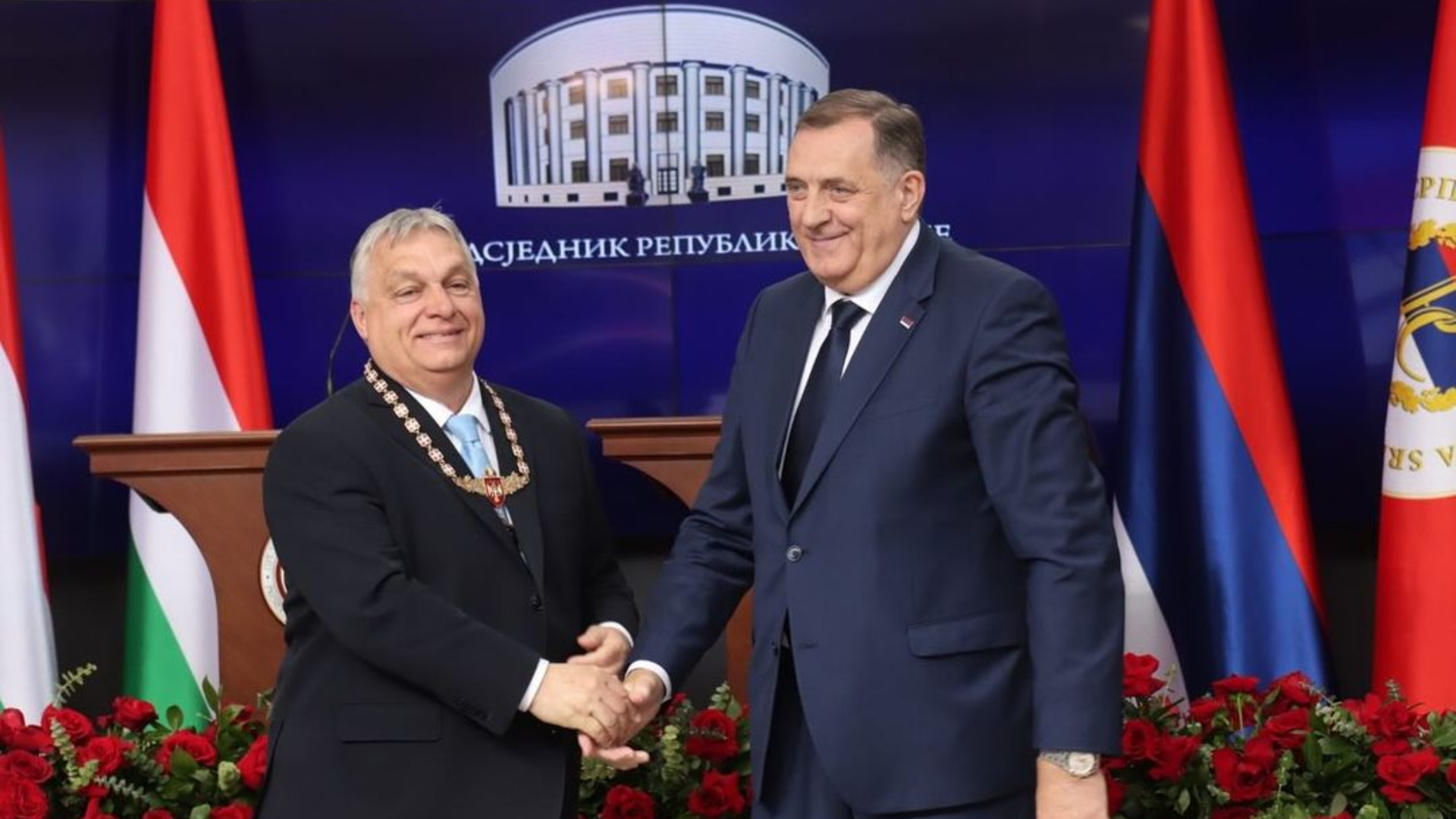
The award ceremony took place in a festive atmosphere, and was accompanied by a number of other programmes on Republika Srpska state television, RTRS throughout the day, specifying the relations between the two countries. In one of the TV talk shows, Radovan Višković, the Prime Minister of the Serb entity, said that Hungary had realised that Bosnian Serbs should be included in any debate on the Serbian entity, and by that
Hungary has shown an attitude that no one else has ever shown before.
“This is Orbán’s second visit to Banja Luka in the last year, which should not be ignored. Hungary is a member of the European Union; Prime Minister Orbán is one of the EU leaders, he is highly respected and his opinion is valued around the world. Therefore, we are honoured that Hungary understands the situation of the Republika Srpska in some way” – Višković said.
Text: Virág Gyurkovics
Visualisation: Andrea Dancsó / Flourish
Cover photo: Milorad Dodik President of Republika Srpska and Hungarian Prime Minister Viktor Orbán in Budapest, Hungary, October 2022. Source: Miniszterelnöki Sajtóiroda (Prime Minister’s Press Office) / Zoltán Fischer.
The text was originally published in Hungarian on 25. 11. 2024.
This article was written in cooperation with Transparency International Hungary, with the support of the Transparency International Secretariat, in the framework of the Global Anti-Corruption Consortium.
